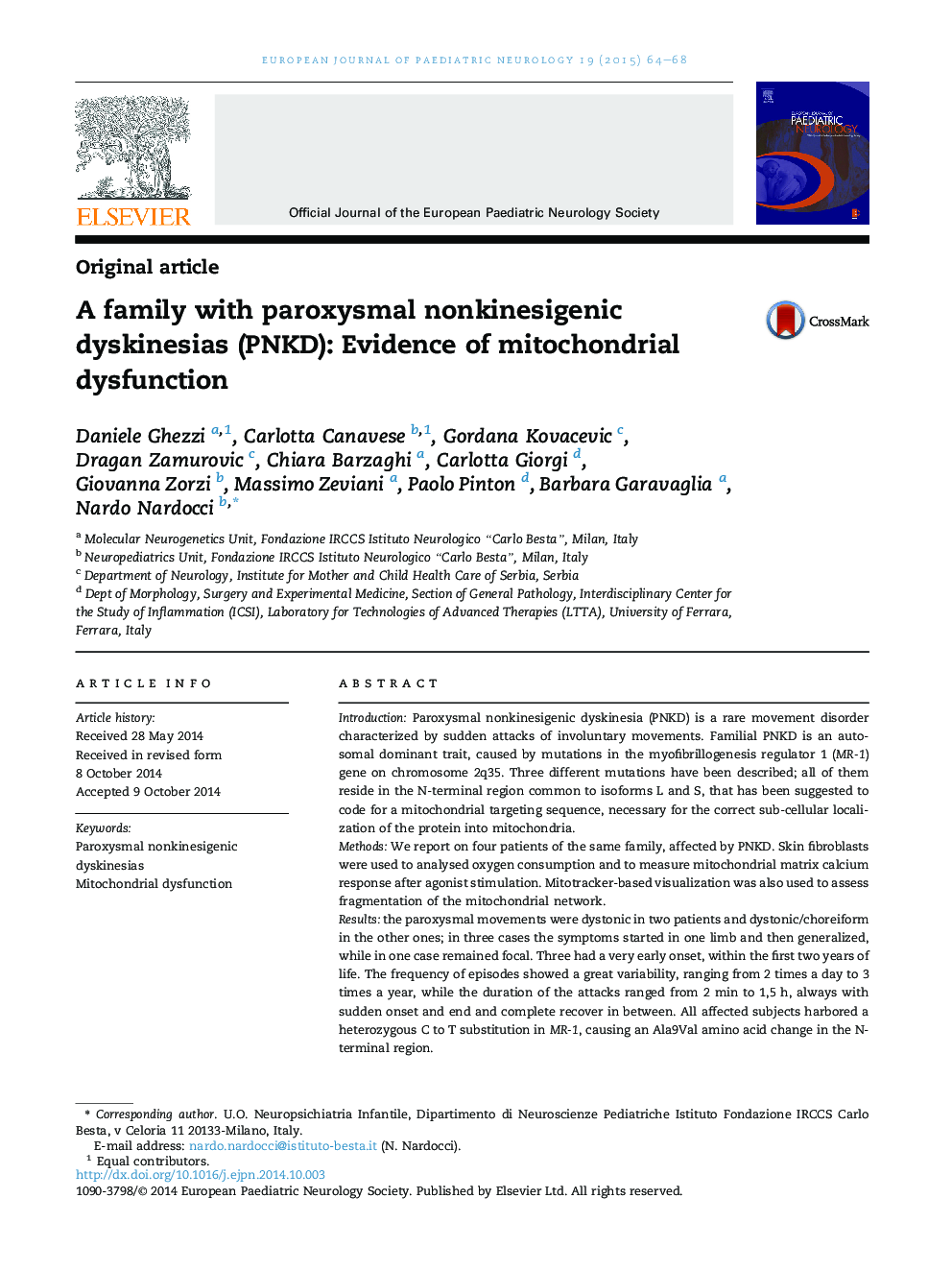| Article ID | Journal | Published Year | Pages | File Type |
|---|---|---|---|---|
| 3053778 | European Journal of Paediatric Neurology | 2015 | 5 Pages |
IntroductionParoxysmal nonkinesigenic dyskinesia (PNKD) is a rare movement disorder characterized by sudden attacks of involuntary movements. Familial PNKD is an autosomal dominant trait, caused by mutations in the myofibrillogenesis regulator 1 (MR-1) gene on chromosome 2q35. Three different mutations have been described; all of them reside in the N-terminal region common to isoforms L and S, that has been suggested to code for a mitochondrial targeting sequence, necessary for the correct sub-cellular localization of the protein into mitochondria.MethodsWe report on four patients of the same family, affected by PNKD. Skin fibroblasts were used to analysed oxygen consumption and to measure mitochondrial matrix calcium response after agonist stimulation. Mitotracker-based visualization was also used to assess fragmentation of the mitochondrial network.Resultsthe paroxysmal movements were dystonic in two patients and dystonic/choreiform in the other ones; in three cases the symptoms started in one limb and then generalized, while in one case remained focal. Three had a very early onset, within the first two years of life. The frequency of episodes showed a great variability, ranging from 2 times a day to 3 times a year, while the duration of the attacks ranged from 2 min to 1,5 h, always with sudden onset and end and complete recover in between. All affected subjects harbored a heterozygous C to T substitution in MR-1, causing an Ala9Val amino acid change in the N-terminal region.A significant reduction of oxygen consumption and altered calcium homeostasis were found in mutant fibroblasts compared to controls, while no difference was detected in mitochondrial network.ConclusionsThe data on reduced oxygen consumption and altered calcium homeostasis obtained on mutant fibroblasts are the first evidences, in physiological conditions, of a mitochondrial dysfunction in PNKD.
